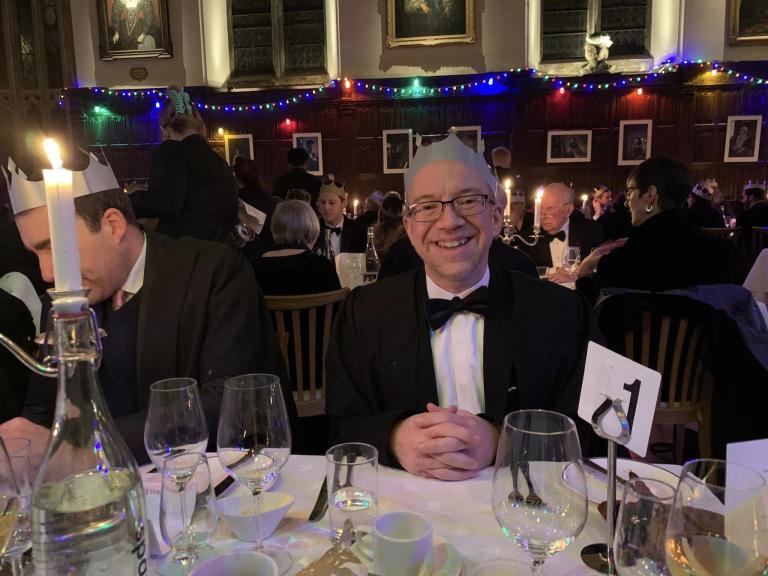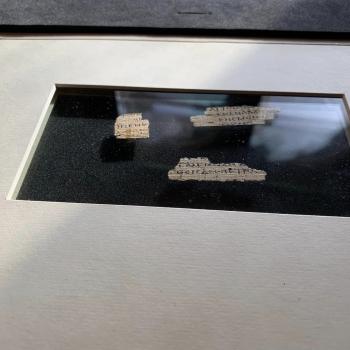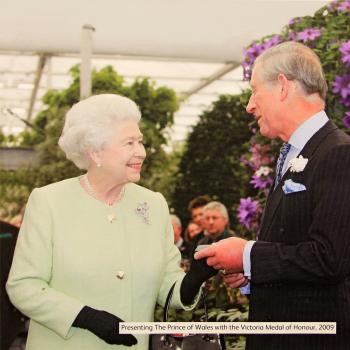It has been a month since my last blog post. I would have to check but I think that is a record for me. I decided early on, as I contemplated taking a full-year sabbatical for the first time in my life, that I would give myself permission to blog less and sometimes not at all, and do less with social media, limiting those interactions to the genuinely personally and professionally meaningful and to things relevant to my sabbatical research and writing project about John the Baptist.
I will have other posts about the focus and content of my research. On my last full day as a visiting fellow at Magdalen College, Oxford, I want to focus on the practicalities of life, both to share them for anyone interested, and to provide advice for future visiting fellows not just at this particular college or even Oxford University but in the UK more generally. Oxford, and often Oxford and Cambridge, have distinctive quirks other universities here do not, just as each college is at least slightly different. Just as one example, the name of Magdalen College is pronounced “Maw-duh-lin College.”
First, how do you get a visiting fellowship? Apply! The key question is how to find out about them. I subscribed to jobs.ac.uk back when I first graduated with my PhD and never unsubscribed precisely because the emails include not only academic jobs but visiting fellowships. But go to individual college websites and look to see what they offer. These are offered by individual colleges which are independent entities with their own standing. Departments may have visiting professorships but visiting fellowships are based at colleges. Mine was wholly research-focused but I nonetheless sought out opportunities to give talks and get feedback on what I have been working on. The colleges are where students have tutorials, essentially one on one instruction with an academic. It is a remarkable system, but also as a result convoluted. Colleges do their thing, departments do their thing, and some of those things are connected, in ways that no one would design from the ground up to work that way but which, like a language, works because everyone has become accustomed to the rules, the other rules, the exceptions, and so on.
While some visiting fellowships may come with a stipend or other additional funding, most do not. They are thus ideal for those who have a sabbatical funded by their university or a research leave funded by a grant. Being fully immersed in an academic setting really does make a difference, in addition to any library resources at that location. I have told many people that this term has been like being a doctoral student again, just without the nagging self-doubt and external pressure.
So, most visiting fellowships “only” provide accommodation and meals. But such meals! For breakfasts (which may not be included) you can get yourself the Fruit and Nut Muesli from Sainsbury’s, which has more fruit and nuts in it than other brands, including some of the really famous ones like Alpen, and no sugar added. At meals, try the pudding or sweet when it sounds like it is worth it but ask that fruit be substituted otherwise, as it will keep you from putting on weight. (Pudding or sweet is what Americans call “dessert.” At Magdalen College “dessert” is an after-dinner gathering with fruit, Turkish delights, and after-dinner drinks. There is a lot of quirky terminology, but some of it will be explained to you and the rest you’ll figure out or be able to ask someone about. Oxford colleges are full of fellows from all over the world and they did not all arrive here knowing the lingo or the system. Indeed, these things are quirky even for most people from the UK).
Old libraries often have multiple cataloguing systems. At Oxford you can search for books, including some at college libraries. Colleges have separate libraries and you’ll need to ask permission to consult them if you are not at that particular college. (The entire system of colleges and departments at Oxford is complex and at times baffling, and so you’ll want to look into that. It would require a blog post unto itself!) Both the main university libraries (here the Bodleian) and the college libraries will have in their holdings not only print books but manuscripts. These are not always catalogued, much less catalogued online, but check the Internet Archive to find what is, and do it before you even apply for a fellowship. So, you may need to go to a place and flip through the card catalogue (yes, seriously, and literally). Wherever you look, lots of manuscripts are not described at length. If you’re interested in John the Baptist (as I am at the moment) you’ll need to search for versions of his name in Latin and Greek, including sometimes just a descriptor (“the forerunner”), and even then something about him may be there in a collection marked simply “hagiography” or “homilary.”
There are not just multiple databases but multiple call number and cataloguing systems. Some parts of the library appear to have assigned books sequential numbers as they were acquired, rather than by subject. Search the online catalogue. Things you need will be in multiple locations. Many will be in storage and brought to a reading room in response to a request. In view of all this, browsing shelves will be of limited value, although always still worth doing. Most of the university libraries will not let you borrow books. Hopefully if you are a researcher you’re actually looking forward to sitting in the library and reading.
For Americans, I know that the only time you’ve seen a college dining hall with the fellows (professors) seated at high table is in Harry Potter. But Harry Potter is based on British academic life, not vice versa, so please don’t say that the dining halls and meals are “very Harry Potter.” (I say this as someone who literally sat next to a professor with the surname Snape this term.)
Do not underestimate the value of sitting next to and talking with people outside of your field, which will happen often but especially at meals. Occasionally there will be awkward conversations (or rather, failed attempts at conversation), but in general academics in Oxford are broadly intellectually curious and widely read, and even when someone is so far from your field that the conversation might seem like it won’t provide helpful insights and bibliographical suggestions for your research, it will nonetheless help you hone how you explain what you are working on for a general audience.
Don’t bring a random (or even a very special) black academic gown from elsewhere. You will need a gown for meals and chapel services but there are ones that can be borrowed, and Oxford gowns have a distinctive style. (I am ever so grateful to a friend who lent me his for the term, which made things very convenient.)
Get what you need to dress black tie. This can be accomplished relatively affordably by visiting your local charity store after the end of the school year when students finish their time in their high school bands and parents donate their uniforms. Black tie for men means black bow tie, not a black necktie. But no one here will judge you for wearing a black suit jacket rather than a tuxedo jacket. Europeans often wear a dinner shirt with a flat rather than wing collar with black tie, reserving the latter for white tie which is an even higher level of formality. Either will be fine. The shirt should either have studs or a flap that hides the buttons, not just any white dress shirt. If you can get a proper bow tie and learn to tie it, it is worth the experience. I came with a pre-tied one but found a proper traditional black tie at Oxfam while here.
The Senior Common Room at Magdalen College has an espresso machine. If you get to learn to use one for the first time, really pressing down the coffee is key. I made a terrible espresso on my first attempt and learned my lesson.
I will say more about the research itself but here is one thing that seems important to include among the practicalities. A huge misconception professors often have is that librarians and archivists are annoyed by inquiries. They do what they do because they believe these collections of historically important books, manuscripts, and other documents are valuable and should be consulted and studied. Don’t hesitate to reach out to them.
Handle old manuscripts if you have the opportunity, even if you don’t strictly have to. Even if you can work just fine with critical editions and/or digital facsimiles, seize the opportunity to find out what the actual books and manuscripts are like.
Go to chapel as often as you can. World class choral music will enrich your life even if Anglican Evensong is not part of your prior experience or heritage.
Take lots of photos – not too many, and not in every circumstance, but enough to share with friends and families when you get back. And take enough notes on your experiences to be able to share stories. You’ll forget a lot otherwise. Or just do what I do and share the photos and stories on Facebook right away. Celebrate the experience and share it, and fully immerse yourself to the extent you can. I lived and studied in the UK so things like Christmas crackers were not new to me. But every academic should try to do a visiting fellowship at some point in their career. Some will be lucky enough to do one somewhere where they make good friends, get a lot of writing done, and get to wear a paper crown (that’s what’s in the Christmas cracker, which for those who don’t know is not a salted thing you eat but a wrapper with a noisemaker. I’ll share a photo of me in the paper hat below. But first, here’s Mr. Bean to fill in those who need a tutorial on Christmas crackers…

I hope the above is interesting to blog readers and useful to some would-be visiting fellows who find it. If a question you have about this kind of experience isn’t answered here, ask!













